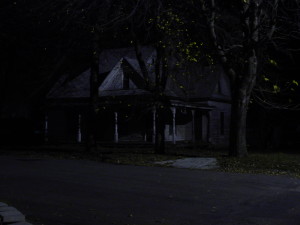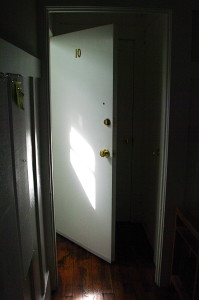Intent to Commit Murder, Robbery, Rape, Arson
A breaking and entering charge in Virginia with intent to commit rape, robbery, murder or arson is criminalized under Va. Code §18.2-90. This statute can be violated by entering a dwelling house at night without breaking, breaking and entering during the day, or entering and hiding. This breaking and entering charge in Virginia is complete when entry with intent to commit murder, rape, robbery or arson is made.
Proof of Breaking and Entering Charge in Virginia with Intent to Commit Murder, Rape, Robbery, or Arson
To convict an offender of a breaking and entering charge in Virginia under Va. Code §18.2-90, the Commonwealth must prove every element of the offense: entering a dwelling house at night, breaking and entering at any time, or entering and hiding, and an intent to commit either murder, rape, robbery or arson.
Entering Dwelling House at Night


Entry is intrusion into the interior space of a structure. A breaking and entering charge in Virginia under Va. Code §18.2-90 has been committed when entry is made with intent to commit murder, rape, robbery or arson. An offender can be convicted of breaking and entering in Virginia under Va. Code §18.2-90, even if he had permission to enter, if he entered with a plan to commit murder, rape, robbery or arson. He also can be convicted if he entered a business or place open to the public with the intent to commit murder, rape, robbery or arson. Nighttime means between sunset and sunrise.
Breaking and Entering
The second way to commit a breaking and entering charge in Virginia under Va. Code §18.2-90 is by breaking and entering at any time of the day. The Commonwealth must prove both a breaking and an entry.
- Breaking means using any element of force without permission against a structure to gain entry. The breaking does not need to cause any damage. Breaking can be actual or constructive. Actual breaking includes some sort of physical force applied to the structure to gain entry. Constructive breaking involves using threats, force, or conspiracy to cause someone to allow access to the structure.
- Entering is any intrusion into the interior of a structure.
Entering and Hiding
The third way an offender can violate Va. Code §18.2-90 is by entering and hiding in a structure with intent to commit murder, rape, robbery or arson.
Dwelling House/Structure
The structures covered by this statute include a dwelling house or adjoining outhouse, any bu

Intent to Commit Murder, Rape, Robbery, Arson
The Commonwealth must allege and prove that the offender entered the structure with the intent to commit a specific crime-either murder, rape, robbery or arson. Intent can be proven by circumstantial evidence, and the intended crime does not need to be completed to convict an offender of a breaking and entering charge in Virginia under Va. Code §18.2-90.
Burglarious Tools
Possessing tools commonly used in breaking and entering, if these tools matched the ones used in the burglary, can be evidence that an offender committed a burglary in Virginia. Possession of burglarious tools with intent to commit burglary, robbery or larceny is also a Class 5 felony under Va. Code §18.2-94, punished with up to 10 years in prison. Click here for more information on the charge of possessing burglarious tools in Virginia.
Deadly Weapon
If the offender uses a deadly weapon in the commission of a Virginia breaking and entering under Va. Code §18.2-90, it becomes a Class 2 felony, punished with up to life in prison. A deadly weapon is an instrument that is likely to produce great bodily harm or death. For more information on deadly weapons in Virginia, click here.
Penalty for Breaking and Entering Charge in Virginia with Intent to Commit Murder, Rape, Robbery, Arson
Va. Code §18.2-90 is a Class 3 felony punished with 5-20 years in prison and a fine up to $100,000. Use of a deadly weapon in commission of the breaking and entering makes the offense a Class 2 felony, punished with 20 years up to life in prison and a fine up to $100,000.
Breaking and Entering Charge in Virginia with Intent to Commit Murder, Rape, Robbery, Arson Statute
§ 18.2-90. Entering dwelling house, etc., with intent to commit murder, rape, robbery or arson; penalty.
If any person in the nighttime enters without breaking or in the daytime breaks and enters or enters and conceals himself in a dwelling house or an adjoining, occupied outhouse or in the nighttime enters without breaking or at any time breaks and enters or enters and conceals himself in any building permanently affixed to realty, or any ship, vessel or river craft or any railroad car, or any automobile, truck or trailer, if such automobile, truck or trailer is used as a dwelling or place of human habitation, with intent to commit murder, rape, robbery or arson in violation of §§ 18.2-77, 18.2-79 or § 18.2-80, he shall be deemed guilty of statutory burglary, which offense shall be a Class 3 felony. However, if such person was armed with a deadly weapon at the time of such entry, he shall be guilty of a Class 2 felony.





